It sometimes seems likes every town in China has its own special take on noodles. Here in Liuzhou, Guangxi the local dish is Luosifen (螺蛳粉 luó sī fěn).
It is a dish of rice noodles served in a very spicy stock made from the local river snails and pig bones which are stewed for hours with black cardamom, fennel seed, dried tangerine peel, cassia bark, cloves, pepper, bay leaf, licorice root, sand ginger, and star anise. Various pickled vegetables (but especially pickled bamboo shoots), dried tofu skin, fresh green vegetables, peanuts and loads of chilli are then usually added. Few restaurants ever reveal their precise recipe, so this is tentative. Luosifen is only really eaten in small restaurants and roadside stalls. I've never heard of anyone making it at home.
In order to promote tourism to the city, the local government organised a food festival featuring an event named "10,000 people eat luosifen together." (In Chinese 10,000 often just means "many".)
10,000 people (or a lot of people anyway) gathered at Liuzhou International Convention and Exhibition Centre for the grand Liuzhou luosifen eat-in. Well, they gathered in front of the centre – the actual centre is a bleak, unfinished, deserted shell of a building. I disguised myself as a noodle and joined them. 10,001.
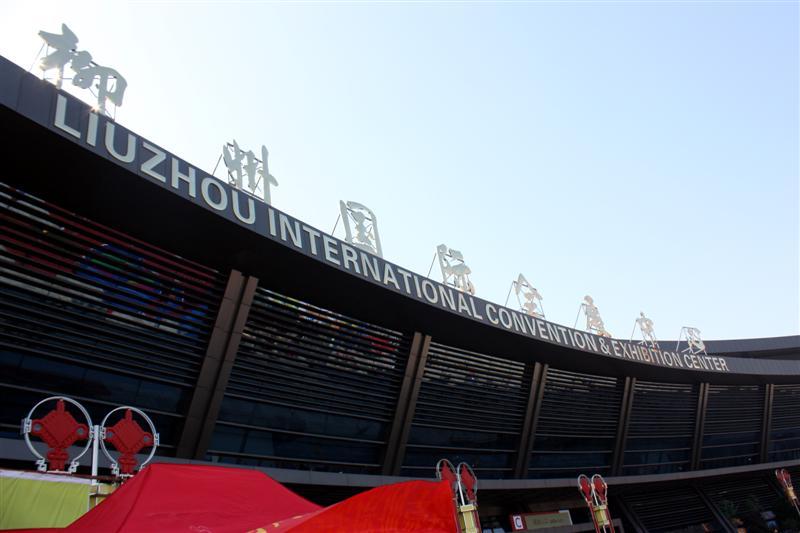
The vast majority of the 10,000 were students from the local colleges who patiently and happily lined up to be seated. Hey, mix students and free food – of course they are happy.
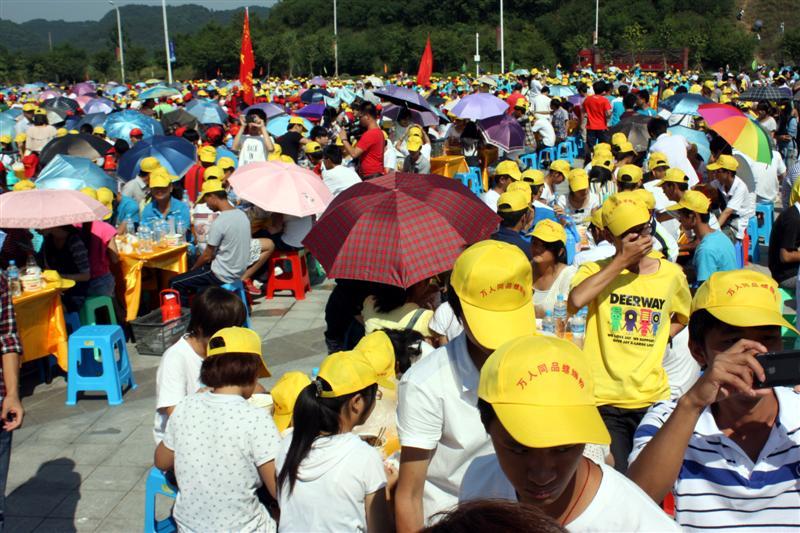
Each table was equipped with a basket containing bottled water, a thermos flask of hot water, paper bowls, tissues etc. And most importantly, a bunch of Luosifen caps. These read “万人同品螺蛳粉” which means “10,000 people together enjoy luosifen”
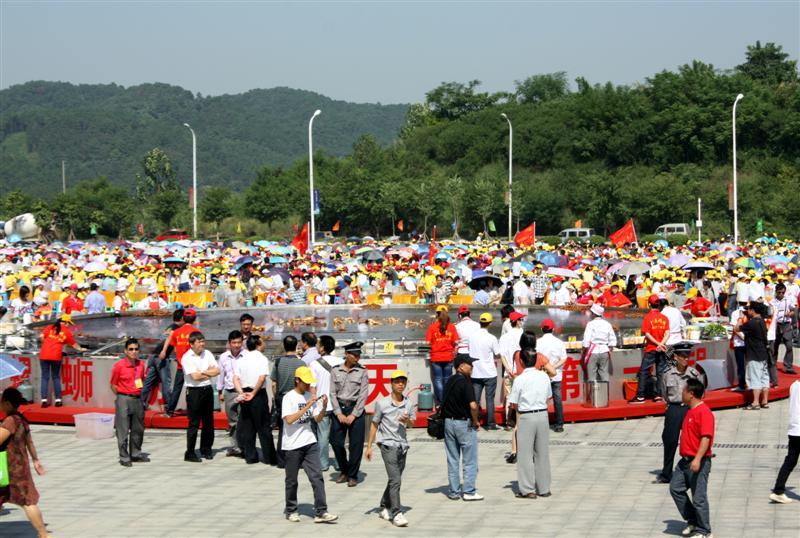
Yep, that is the soup pot! 15 meters in diameter and holding eleven tons of stock. Full of snails and pork bones, spices etc. Chefs delicately added ingredients to achieve the precise, subtle taste required.
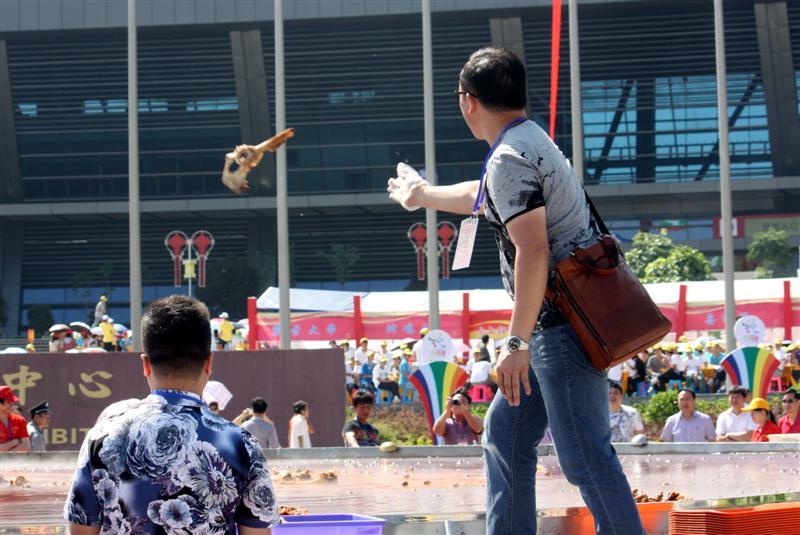
Noodles were distributed, soup added and dried ingredients incorporated then there was the sound of 10,000 people slurping.
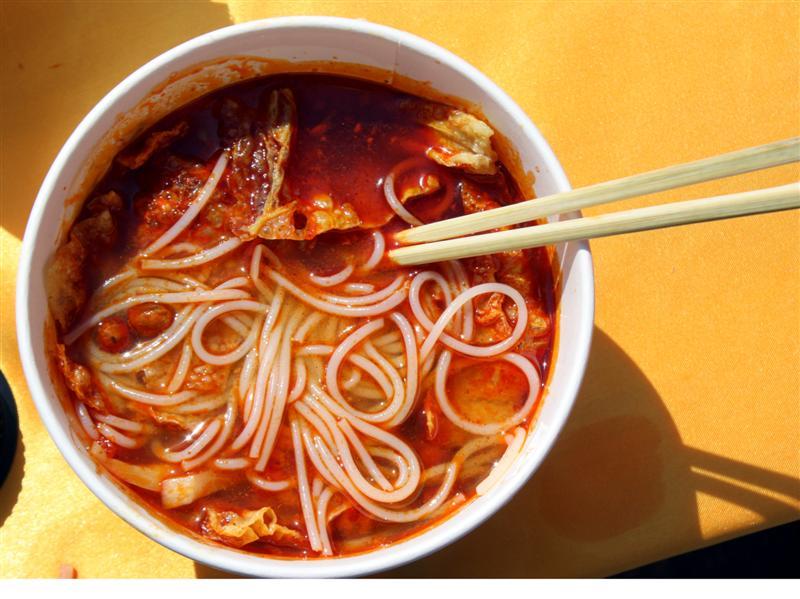
Surrounding the luosifen eating area were several stalls selling different goodies. Lamb kebabs (羊肉串) seemed most popular, but there was all sorts of food. Here are few of the delights on offer.
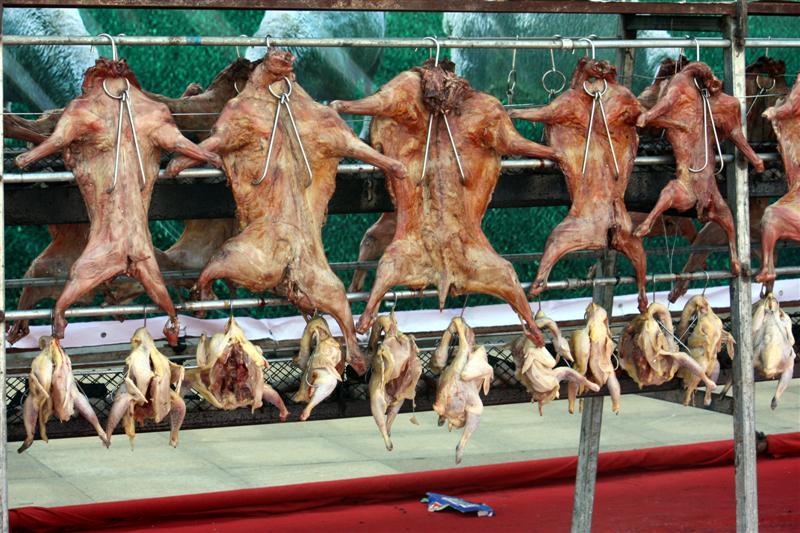
Whole roast lamb or roast chicken
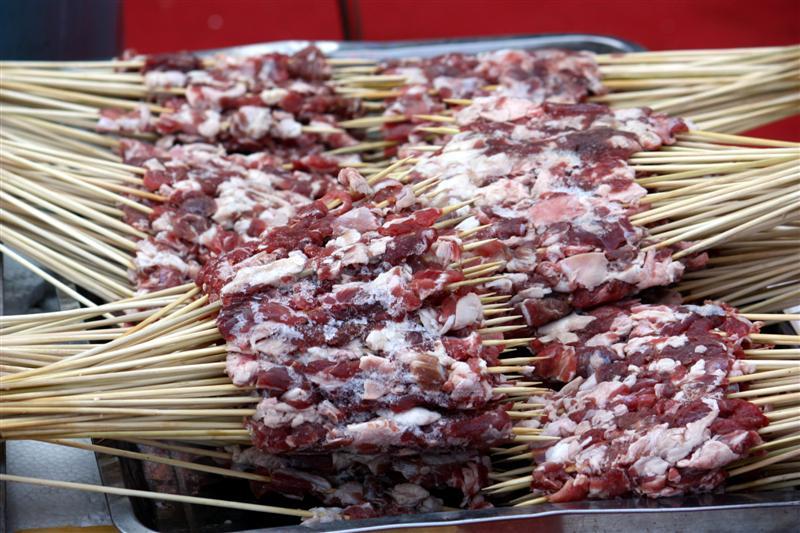
Lamb Kebabs
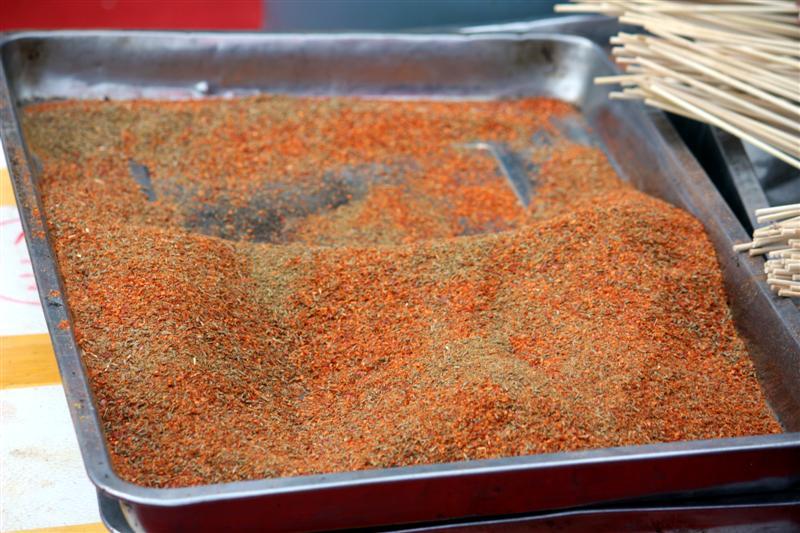
Kebab spice mix – Cumin, chilli powder, salt and MSG
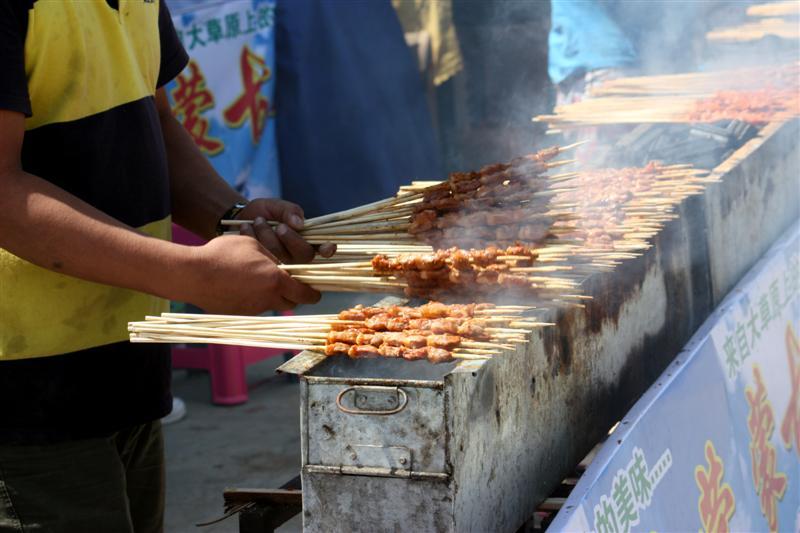
Kebab stall
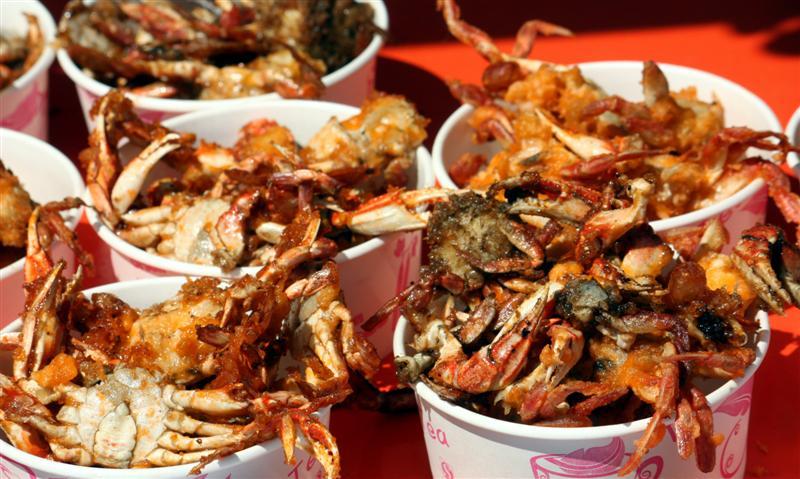
Crab
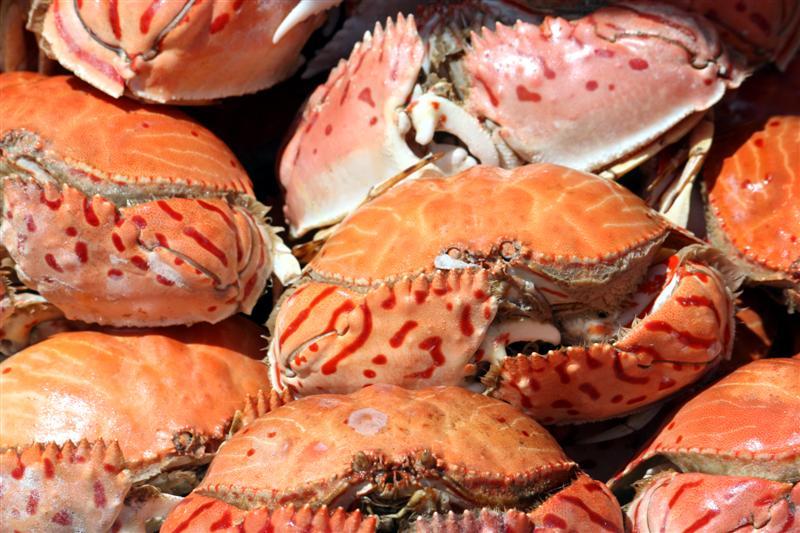
Different crab
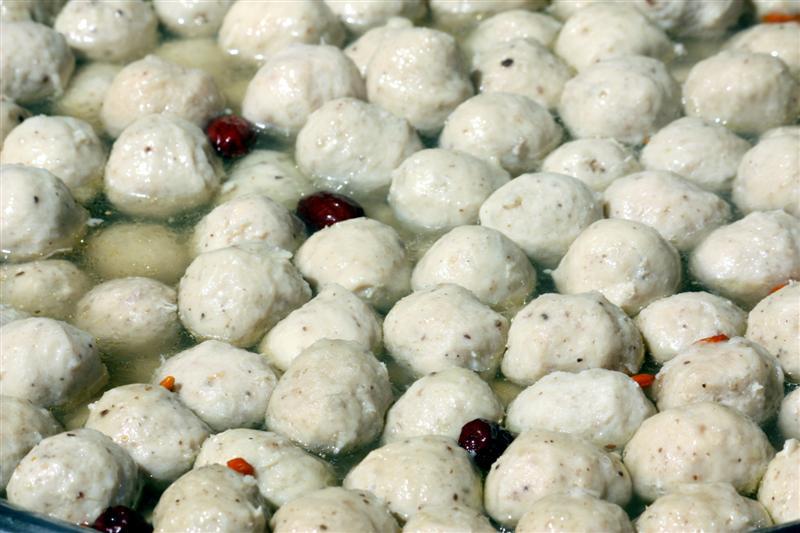
Sweet sticky rice balls
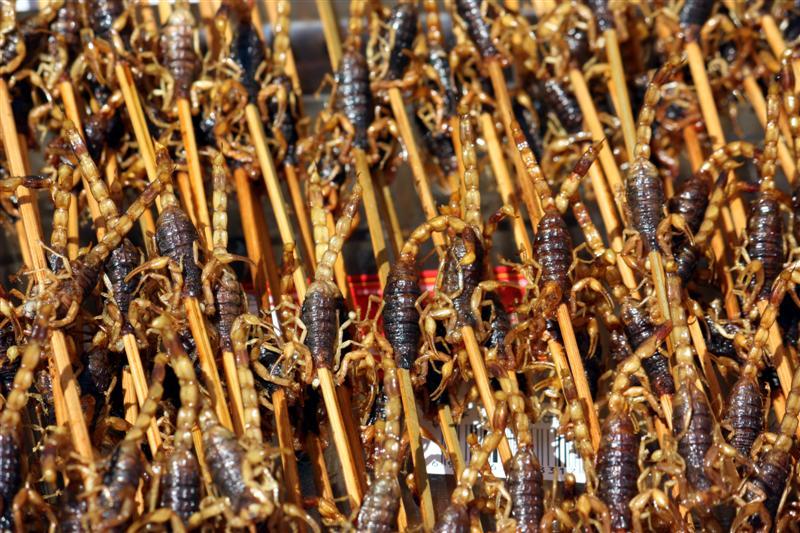
Things on sticks
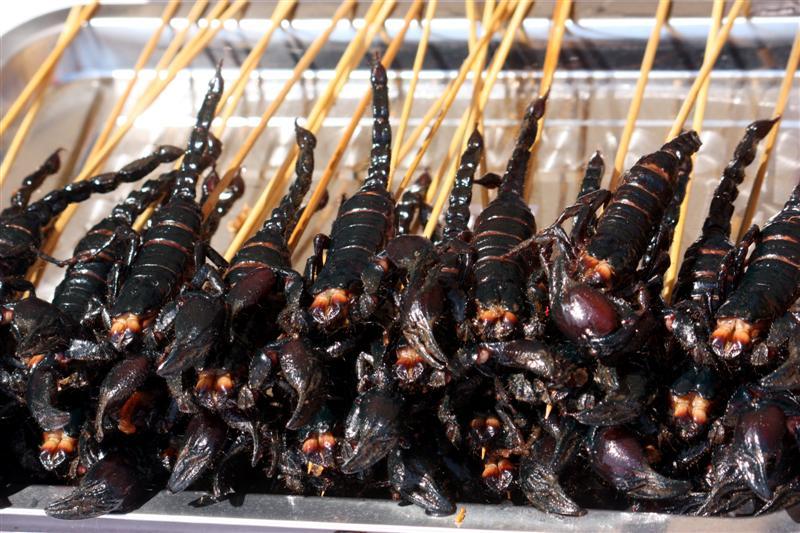
Grilled scorpions
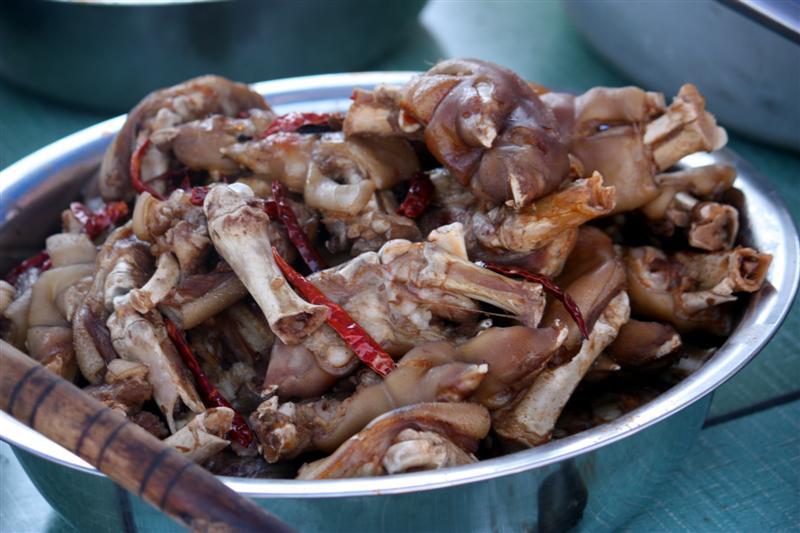
Pig bones and bits
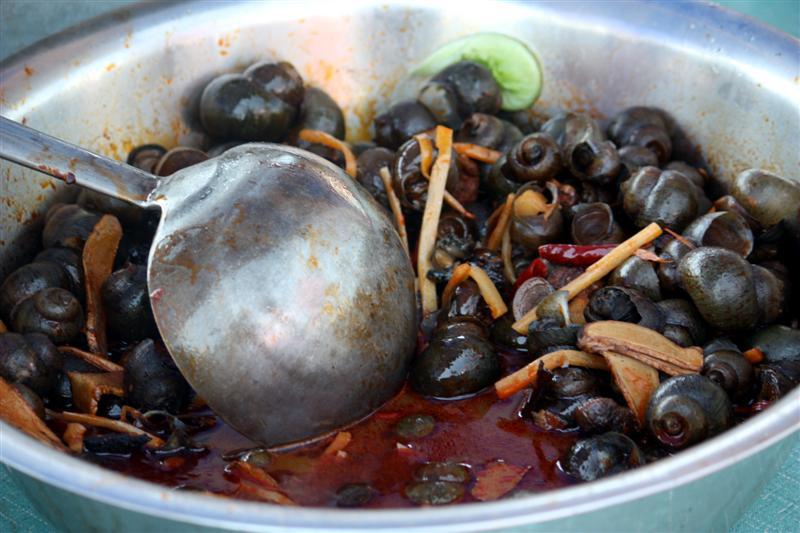
Snails
And much more.
To be honest, it wasn’t the best luosifen I’ve ever eaten, but it was wasn’t the worst. Especially when you consider the number they were catering for. But it was a lot of fun. Which was the point.

















